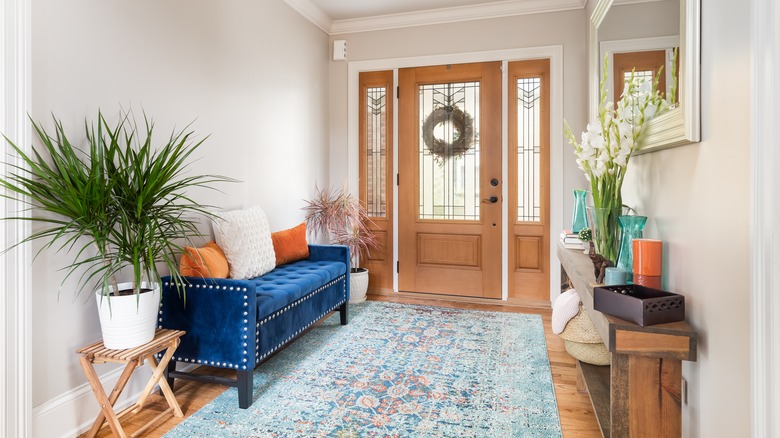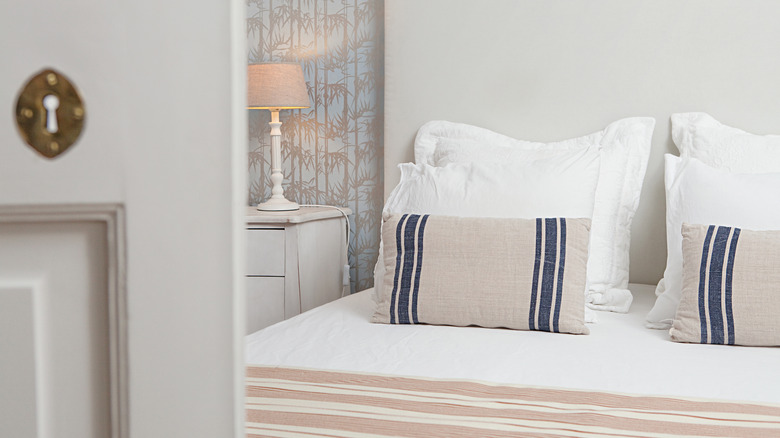Why You Shouldn't Block Your Doors, According To Feng Shui
Doors hold special meaning in feng shui, the ancient art of using object placement to encourage chi or energy to flow freely. Karen Kingston, master organizer and feng shui expert, says that doors should open freely without clutter blocking their path or extra weight upon them. So, those over-the-door hooks that come in handy for hanging towels or jackets are actually not so great for good chi. Items placed on doors or knobs encumber the natural swing of the entrance, which can translate into a heaviness in your life. According to House Caravan, a door that is unable to open all the way translates into blocked opportunities in life.
In other words, when a door has difficulty opening, it blocks the flow of energy, and that blockage can be mirrored in your life journey. To help alleviate this, repairing or replacing stubborn hinges can help increase chi flow. Additionally, moving objects away from the path of the doorway so it can open at least 90 degrees (more is optimal) is important in feng shui.
Begin with the mouth of chi
There are numerous key factors to inviting positive chi into your home that begin with the front entrance, including the walkway, plants, and, especially, the front door. According to Peace.Love.FengShui, the front door is called "the mouth of chi," and it's where energy enters your house. So, be it ornate or plain, its presence should be a welcoming statement in order to bid good energy into your residence.
Fenshuied also says this entrance is considered the main vortex for chi and should open inward with the foyer or inner entryway being well-lighted, clear of clutter, and inviting. Cosmic Cuts suggests that maintaining order around the entrance clears the space from negative vibrations and allows fresh, new energy to enter and flow effortlessly. It's important to use the front door regularly (at least every nine days) to keep the energy coming and moving slowly throughout the house, says China Market Advisor.
Consider all the doors
All the doors in the dwelling should be able to fully swing open without interference from obstacles, without things hanging from the top of the knob, and without resistance from troublesome hinges. According to Blooming Sense, they should swing inward, opening into the room rather than into the hallway, and the pathway should be welcoming. Every entrance of the home should be clean and free of scratches, peeling paint, and scuffs, as a dirty one repels positive chi and allows negative energy to pass through.
Another interesting feng shui rule involves the number of doors in a space. Kathryn Wilking, a professional member of the International Feng Shui Guild, says this is referred to as "arguing doors." If there are too many (especially if they collide with one another upon opening), it is believed that chi can get confused and be prevented from free-flowing. Bedroom entrances should remain open to promote good energy, while a bathroom, a natural place of negative chi, should have its door kept closed.
Western School of Feng Shui teaches that doors symbolize decisions in life and our ability to navigate them with clarity. Keeping this in mind, the focus on doors in feng shui isn't just on keeping the energy flowing throughout your home but also on opening yourself to and welcoming new opportunities in life.


